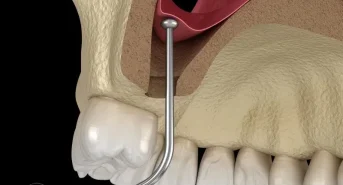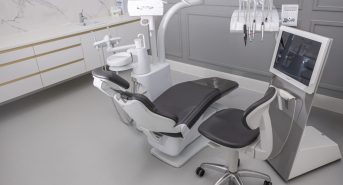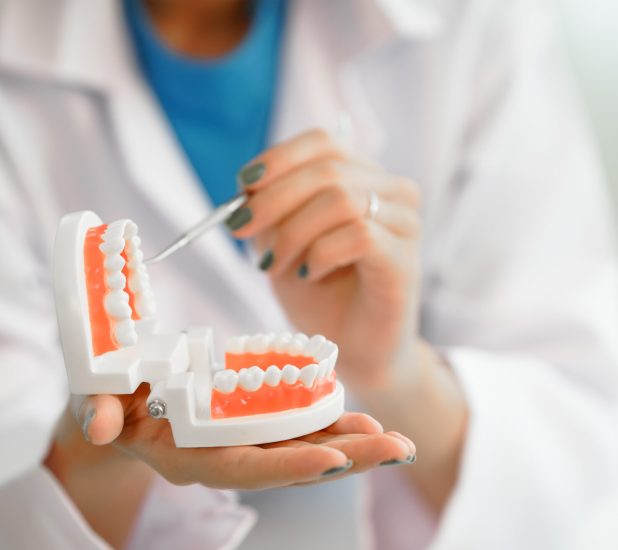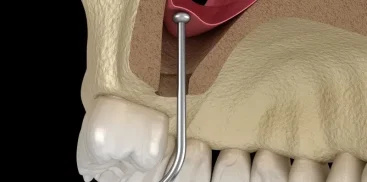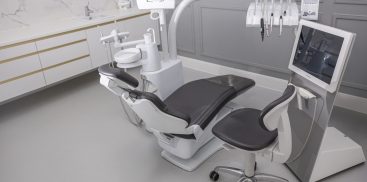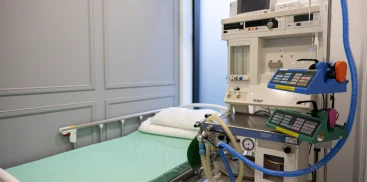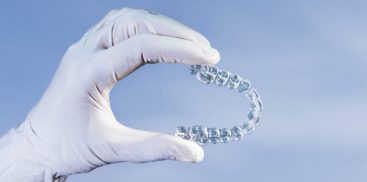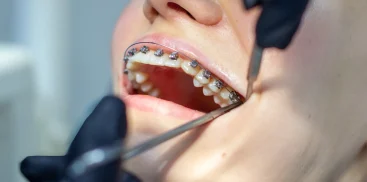Check-up visit to the dentist – at what intervals?
Insufficient frequency of monitoring the condition of the teeth may lead to serious problems in the oral cavity.Many people decide to visit the dentist only when they experience unpleasant symptoms, such as pain or hypersensitivity.Unfortunately, the absence of ailments does not automatically mean that the teeth are healthy.The caries process is often asymptomatic. Therefore, a check-up visit to the dentist is crucial in detecting possible diseases. Early diagnosis allows you to avoid long-term and expensive treatment, which unfortunately often involves high expenses.
Why is regular dental check-up important?
Even the most thorough and correctly performed oral hygiene does not guarantee that health problems will not occur.That is why regular check-ups are so important to help maintain oral health and detect any irregularities early.Often, the first symptoms are not visible at home.
Some changes may be subtle and do not cause any discomfort or other unpleasant symptoms.
For example, white spots that may indicate the beginnings of tooth decay often appear at the junction of the teeth.Only during a check-up visit, after thorough cleaning of the teeth, is the dentist able to assess the severity of the problem. Often, patients ignore discoloration, not realizing the seriousness of this common problem. If left untreated or detected at a very advanced stage, cavities may lead to visible changes, tooth necrosis, and even the need to remove it.
It is worth taking advantage of the opportunities offered by conservative dentistry and following the principle “prevention is better than cure”.Regular check-ups and preventive care significantly reduce the risk of serious oral diseases. Endodontic (root canal) treatment, necessary when caries is already advanced, requires many visits and related expenses.
How often should it be?
make an appointment with the dentist? The frequency of preventive visits depends on the dentist’s decision, who adapts it to the individual needs of the patient. In general, adults should visit the dentist at least once every six months. If the condition of your teeth or gums is of concern to your dentist or if earlier examinations are necessary, he or she will recommend additional visits, e.g. every three months.
The frequency of visits also depends on the patient’s age. Children who do not yet have permanent teeth should visit the dentist every three months unless their doctor recommends otherwise. Weaker mineralization of primary teeth may contribute to the faster spread of caries.
The first consultation visit should take place before the age of 18 months. The adaptation visit allows you to assess the structure of the jaw and the teething process. It usually does not involve unpleasant experiences for the child, which allows the child to gradually get used to visits to the dentist.
What is a dental check-up at the dentist?
Each dental examination should begin with a conversation with the patient, i.e. the so-called
medical interview about your general health and changes since your last visit.The preventive examination focuses primarily on the visual and tactile assessment of the palate, gums, buccal mucosa, lips, tongue and the shape of the dental arches. During the examination, the dentist has a chance to notice even the smallest disturbing changes.This assessment is more accurate if the teeth are thoroughly cleaned first. After removing plaque above the gum line, previously invisible cavities may appear.
Therefore, scaling and sandblasting, recommended at the Warsaw Dental Center clinic, should be carried out immediately after the inspection. It is not only aesthetic, but above all preventive, which should be done at least once every six months.
If there is a high risk of disease during the examination, the dentist maye recommend additional X-ray examination, usually a panoramic X-ray. This allows you to detect difficult-to-see problems, such as interdental caries, abscesses or jaw bone damage. The Warsaw Dental Center clinic is equipped with modern medical equipment, which facilitates early diagnosis of problems, including those requiring specialized treatment.
How to take care of your oral hygiene between visits to the dentist?
Even despite regular visits to the dentist, inflammation may occur.
That is why daily oral hygiene is important. First of all, you need to regularly remove dental plaque, which is a breeding ground for bacteria.Between follow-up visits it is worth:
- brush your teeth at least twice a day (preferably about an hour after a meal),
- use dental floss,
- use mouthwashes and irrigators.
Proper hygiene significantly slows down the deposition of tartar and the multiplication of bacteria.
However, visiting the dentist too rarely or delaying reactions to the appearance of ailments may lead to serious dental problems. Regular dental checkups allow you to detect problems early and prevent them from developing further.

